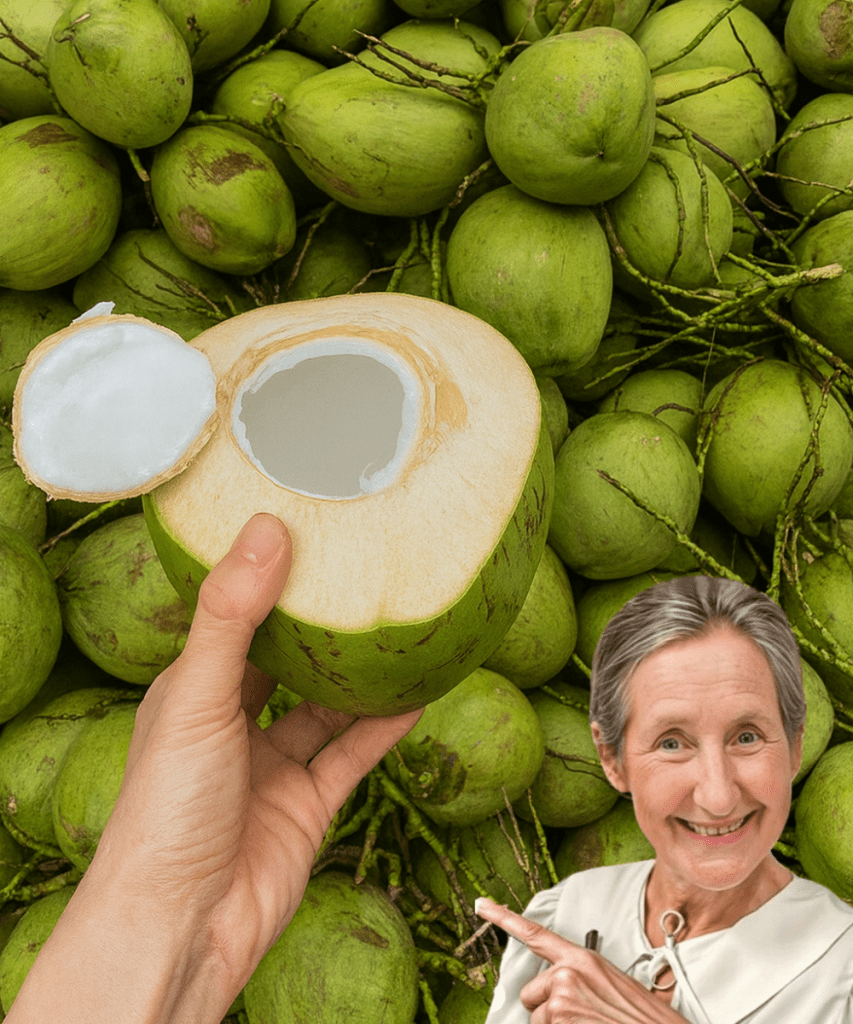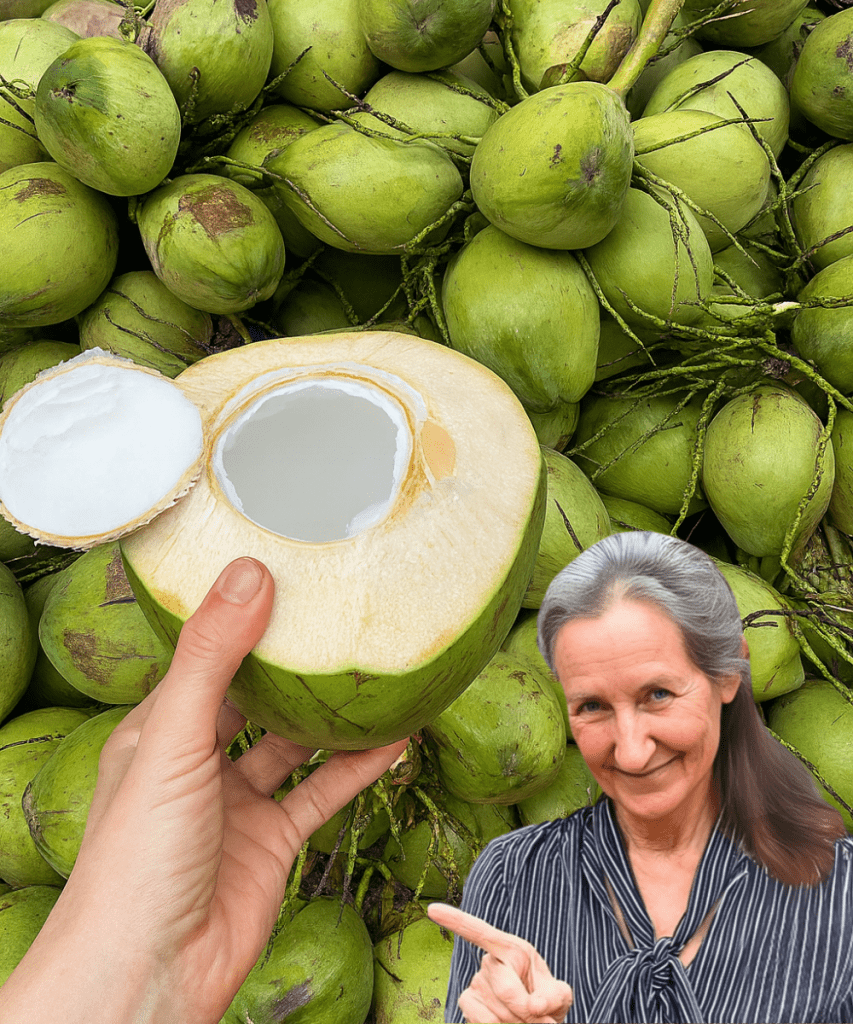Coconut water is celebrated as nature’s ultimate hydration drink, brimming with electrolytes, vitamins, and a refreshing tropical taste. It’s a go-to for post-workout recovery or a hot summer day. But is it as perfect as it seems? Before you pop open that coconut, there are critical facts you need to know to enjoy it safely and maximize its benefits. From potential risks to its powerful perks, this guide will change how you sip this trendy beverage. Ready to dive into the truth about coconut water? Let’s uncover what you need to know.

🌴 What is Coconut Water?
Coconut water is the clear liquid found inside young, green coconuts—not to be confused with creamy coconut milk, which is made from blended coconut flesh. Low in calories and naturally sweet, it’s packed with electrolytes like potassium, sodium, and magnesium, making it a favorite for hydration and recovery. But there’s more to this tropical drink than meets the eye. Here are six key facts to understand before you take a sip.
✨ 6 Essential Facts About Coconut Water
Not Ideal for Everyone
Coconut water’s high potassium content is a blessing for most, but for those with kidney issues, it can be risky. Excess potassium may lead to hyperkalemia, a condition where blood potassium levels spike, potentially causing heart or muscle issues.
What to Do: If you have kidney disease or impaired kidney function, consult your doctor before drinking coconut water.
High Potassium Requires Caution
With more potassium than a banana, coconut water supports heart health and muscle function. But too much can disrupt electrolyte balance, especially if you’re on medications like ACE inhibitors or potassium-sparing diuretics.
What to Do: Stick to 1–2 cups daily and monitor your potassium intake from other foods like bananas or spinach.
May Cause Digestive Discomfort
While gentle for most, coconut water’s fiber content can cause bloating or diarrhea if overconsumed, especially for those with sensitive stomachs.
What to Do: Start with a small serving (4–8 oz) and see how your body reacts before increasing intake.
Not a Water Replacement
Coconut water is a fantastic hydrator, but its natural sugars add calories (about 45–60 per cup). Relying on it exclusively can lead to excess calorie intake.
What to Do: Use coconut water for post-workout recovery or occasional hydration, but make plain water your primary drink.
Watch for Added Sugars
Some commercial coconut waters are spiked with added sugars, preservatives, or artificial flavors, undermining their health benefits.
What to Do: Choose brands with no added sugars or artificial ingredients. Check labels for “100% pure coconut water” or crack open a fresh coconut for the real deal.
No Miracle Cure
Coconut water is often hyped as a cure-all, but it’s not a magic bullet for weight loss, chronic illness, or other health issues. It shines as part of a balanced diet, not a standalone solution.
What to Do: Pair coconut water with nutrient-rich foods and a healthy lifestyle for optimal results.
🌟 Health Benefits of Coconut Water
When consumed mindfully, coconut water offers impressive benefits:
Superior Hydration: Its electrolytes replenish fluids lost during exercise or heat, making it ideal for recovery.
Heart Health Support: Potassium helps regulate blood pressure and supports cardiovascular function.
Antioxidant Power: Contains antioxidants that combat free radicals, protecting cells from damage.
Digestive Aid: Natural enzymes promote gut health and ease digestion.
☕ When and How to Drink Coconut Water
Best Times: Sip after a workout to replenish electrolytes or in the morning for a hydrating start. It’s also great during hot weather to combat dehydration.
How Much: Stick to 1–2 cups (8–16 oz) daily to avoid excess potassium or calories.
Pro Tip: Add a squeeze of lemon or a sprig of mint for a refreshing twist without added sugars.

💡 Tips to Enjoy Coconut Water Safely
Choose Fresh or Pure: Opt for fresh coconut water or brands with no added sugars or preservatives.
Start Small: If new to coconut water, begin with a small serving to test tolerance.
Pair with Meals: Drink alongside balanced meals to complement its nutrients.
Store Properly: Refrigerate opened coconut water and consume within 2–3 days to maintain freshness.
⚠️ Precautions for Safe Consumption
Consult a Doctor: If you have kidney issues, are on potassium-affecting medications, or have digestive sensitivities, seek medical advice.
Avoid Overuse: Excessive intake can lead to electrolyte imbalances or digestive discomfort.
Check Allergies: Though rare, some may be allergic to coconut products—test a small amount first.
😊 The Joy of Mindful Hydration
Drinking coconut water isn’t just about health—it’s about savoring a moment of refreshment that feels like a tropical escape. Imagine sipping a cool glass after a workout, knowing you’re nourishing your body with nature’s electrolytes. It’s a small, joyful ritual that boosts your energy and confidence, all while keeping you hydrated and healthy.
🚀 Sip Wisely and Start Today
Coconut water is a delicious, nutrient-packed drink, but knowledge is key to enjoying it right. By understanding its benefits and limitations, you can make it a smart addition to your wellness routine. Grab a fresh coconut or a pure, unsweetened brand, sip mindfully, and experience the hydration and health perks firsthand.
Don’t just drink coconut water—savor it the smart way. Your body will thank you! 🥥💧









